Are dishwashers harmful to human health?
 Of course, a dishwasher is a very convenient device that saves housewives energy, time and even water consumption. However, some people continue to wash dishes by hand because they believe that washing in the dishwasher can have a negative impact on human health. Is it really harmful to wash dishes in the dishwasher?
Of course, a dishwasher is a very convenient device that saves housewives energy, time and even water consumption. However, some people continue to wash dishes by hand because they believe that washing in the dishwasher can have a negative impact on human health. Is it really harmful to wash dishes in the dishwasher?
Hidden enemy – fungus
All problems begin with the fact that most users do not carefully study the operating instructions for their auxiliary household appliances. Or they study, but then are too lazy to follow all the instructions and neglect them. Moreover, we are not necessarily talking about dishwashers: this also applies to coffee makers, multicookers, microwave ovens, and refrigerators, in a word, almost all electronic household equipment. It would seem that something terrible will happen if you defrost the refrigerator not once a quarter, but once a year, or wash the inside of the dishwasher not regularly, but only when the walls become covered with dirt and grease?
Slovenian scientists were puzzled by the issue of the dangers of dishwashers, since everyone knows that a warm, important environment is a breeding ground for various bacteria and fungi. Then a study was carried out: scientists examined about two hundred different dishwashers around the world, took samples from the inner surface of the walls and other “risky” parts. As a result, it turned out that entire colonies of black yeast live on the rubber seal between the door and the wall of the case. The worst thing is that none of the usual disinfection and germ control measures brought results.Neither boiling water, nor steam, nor acids and alkalis, nor even household chemicals had any effect on the dangerous disputes.
Then scientists began to take samples from cutlery that had been washed in contaminated machines. As it turns out, spores are easily transferred to objects and remain on them after they are taken out of the dishwasher. And black yeast is far from safe for humans, it spoils human health and leads to such problems as:
- lung diseases.
- subcutaneous abscesses.
- inflammatory processes in the brain.
Important! In advanced cases, all these diseases can lead to death. And since the cutlery is contaminated, the person who used it is also infected.
To avoid such terrible consequences, you just need to carefully monitor the hygiene of your household appliances. Remember that the main accomplice of fungus is a warm, moist environment. After using a dishwasher and other items with a similar operating algorithm, wipe the walls, seams, edges, anything that can absorb moisture and become a breeding ground for bacteria.
Very questionable rinse
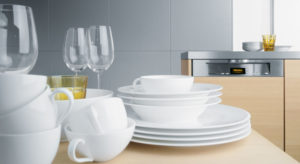 If you have a dishwasher, or you have ever observed its operation from the outside, at a party or somewhere else, you have probably noticed that after washing the dishes become just like new! Not a single stain, not a single drop, not a small speck of dirt: everything sparkles and shines. But what if you think about it? Everyone knows that the better and more abundant the rinsing, the cleaner and more beautiful the dishes look. But at the same time, manufacturers always claim that dishwashers save water and spend an order of magnitude less water on the procedure than housewives when washing by hand.
If you have a dishwasher, or you have ever observed its operation from the outside, at a party or somewhere else, you have probably noticed that after washing the dishes become just like new! Not a single stain, not a single drop, not a small speck of dirt: everything sparkles and shines. But what if you think about it? Everyone knows that the better and more abundant the rinsing, the cleaner and more beautiful the dishes look. But at the same time, manufacturers always claim that dishwashers save water and spend an order of magnitude less water on the procedure than housewives when washing by hand.
What then is the secret of such amazing purity? Everything can’t be so smooth and good. In fact, dishwasher detergents are several times more aggressive and harsher than those sold for hand washing.
Attention! If even ordinary hand tools are not recommended for use without gloves, then imagine the pathogenic danger of detergents for PM.
We will reveal a secret: any household chemical contains surfactants (so-called surfactants), and the more active the product, the higher the content of such elements. Yes, outwardly their action gives a simply perfect result: the dishes seem to have just been removed from the display case. But all this “beauty” settles on the surface of the cutlery, and it is no longer possible to remove it from there. The only thing that can deal with surfactants is chromium-based mixtures or calcination on a burner flame.
In addition, a special liquid rinse aid is added for washing in the dishwasher. It allows you to instantly dry the dishes and rid them of the remnants of the previous detergent. Meanwhile, the composition of the rinse aid is even more aggressive than the composition of a conventional PM product. Thus, one toxic substance is covered by another, and all this remains on your dishes.
Of course, the entry of such substances into the body through food subsequently leads to various reactions, the result of which is, at best, depression, hypertension, allergies, and at worst, malignant tumors.
Chemical attack
Of course, small children are especially at risk from dishwashers. Firstly, their immunity is weakened, and secondly, the same dose of a toxic substance is much more dangerous for a child than for an adult.
- In families where PMs are used, children are more likely to suffer from bronchial asthma: the incidence rate is 5.6% higher than in families without PMs.
- The incidence of atopic dermatitis in children is 15% higher.
- And of course, allergies. More and more children experience seasonal allergy symptoms every year.
Scientists believe that there is a direct link between these childhood diseases and the use of dishwashers. When using such equipment if there is a child in the house, you need to be twice or even three times more careful.
Get used to order
In the modern world, at the speed of light, various ways are being invented to make human life easier and more comfortable. However, the action of all these new devices and inventions is based on chemicals, toxic substances, various types of radiation, and so on. The best way to protect yourself from the harmful effects of such devices on human health is not to use their different types.. The same dishes can be washed with environmentally friendly substances: lemon juice, soda, and even ordinary soap.
And to prevent dishes from piling up in mountains in the sink, you just need to accustom yourself and all household members to wash them immediately after eating. Firstly, various contaminants will not have time to firmly stick to the cutlery, and secondly, washing a little at a time, but regularly, is much easier than raking out huge piles of porcelain in the sink once a week.
Interesting:
Reader comments
- Share your opinion - leave a comment
Categories
Washing machine repair
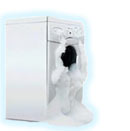

For buyers

For users

Dishwasher

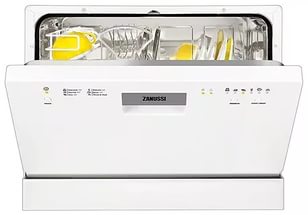



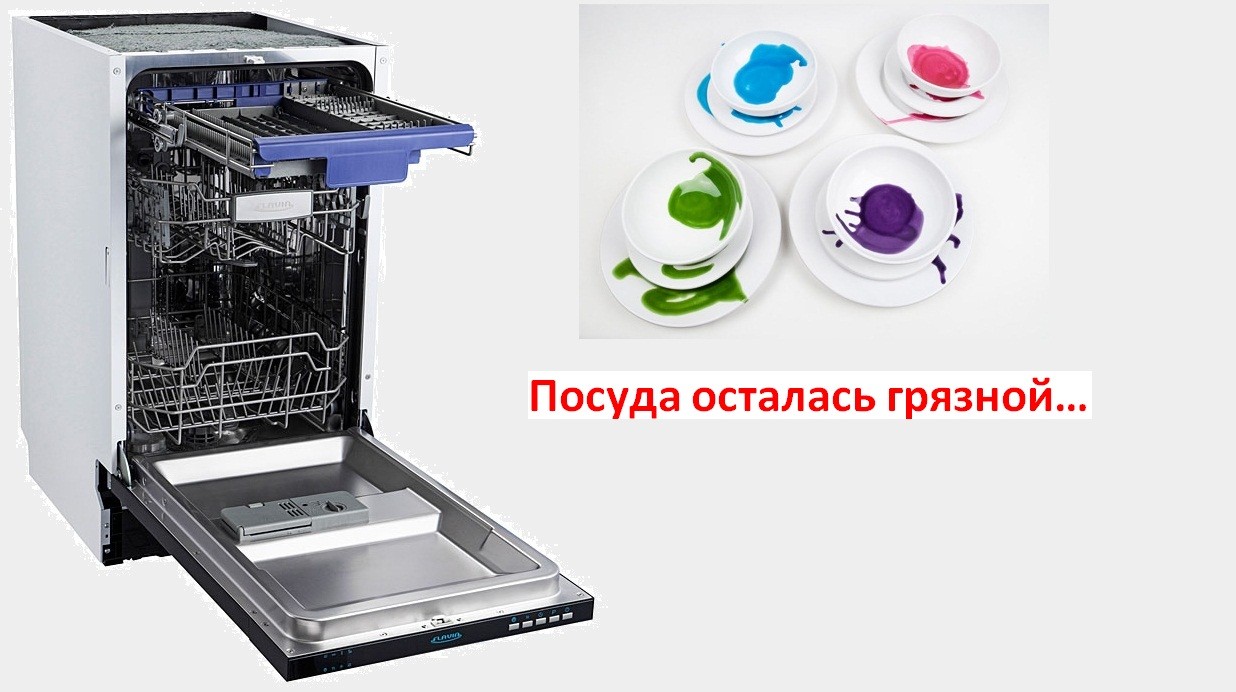
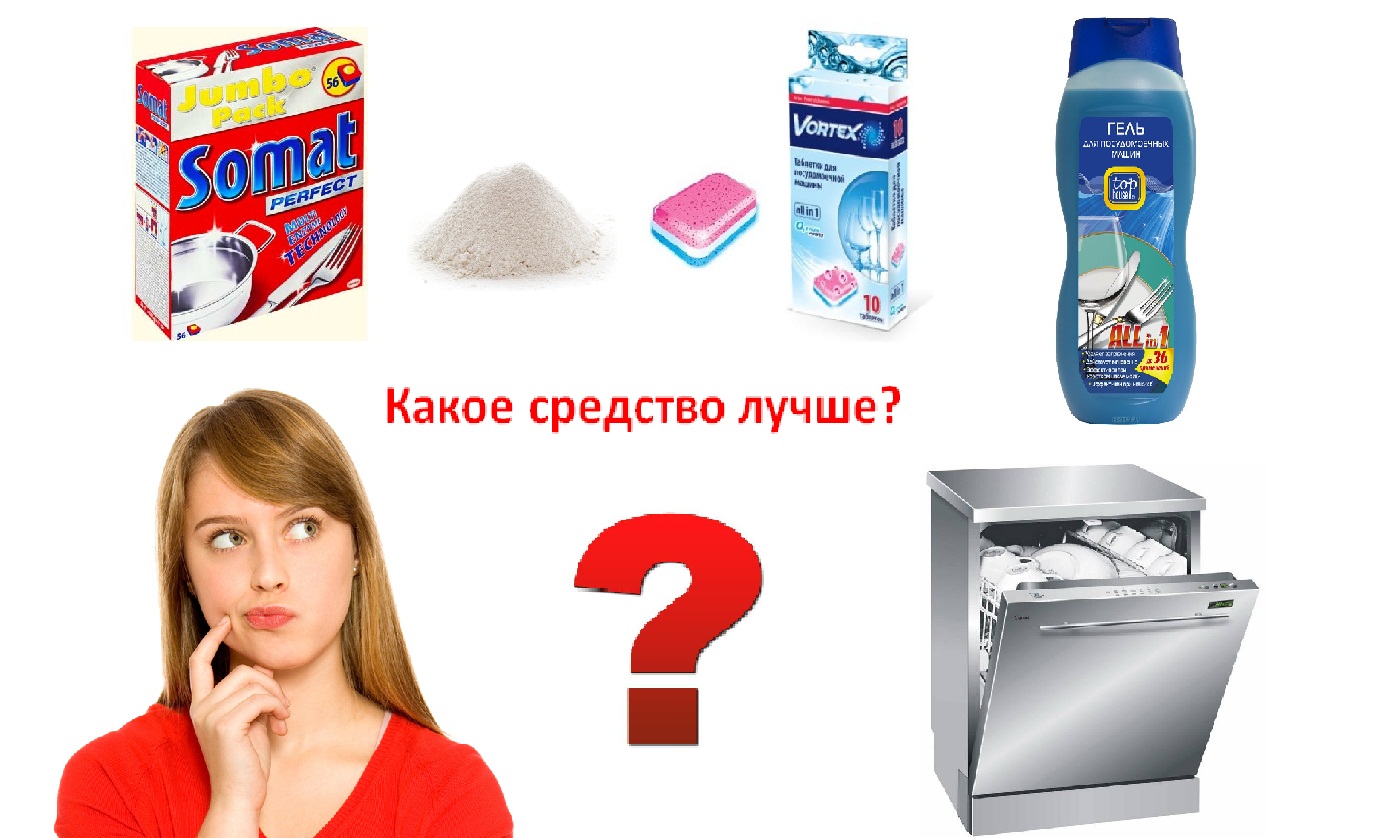
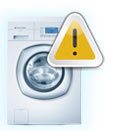


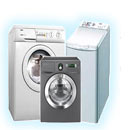
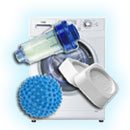


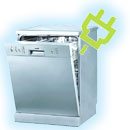


Add a comment